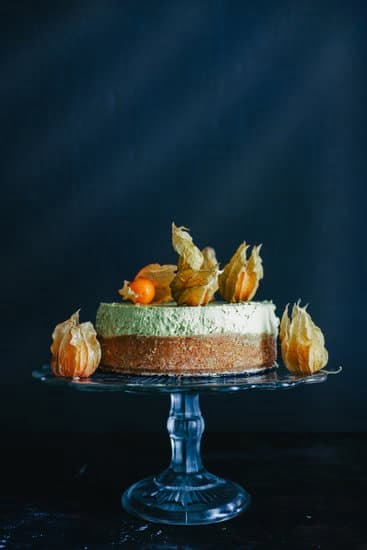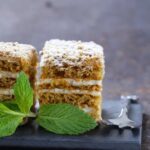In recent times, a cake decorating religion lawsuit has sparked significant controversy and heated debates. This legal battle revolves around the intersection of religion, artistic expression, and anti-discrimination laws. The case has brought to light fundamental questions regarding religious freedom, discrimination, and the limits of artistic practices in our society.
At its core, this lawsuit challenges the boundaries between personal beliefs and professional responsibilities. By delving into the world of cake decorating, an unexpected arena for such conflicts, it raises important questions about how religious views can impact artistic choices and whether those choices should override anti-discrimination laws.
To fully understand the nuances surrounding this case, it is crucial to explore the background of cake decorating as an art form. Dating back centuries, cake decoration has evolved from simple icing techniques to intricate designs that can be considered true masterpieces. Understanding its history and significance provides a broader context for analyzing how cake decorating can be perceived as a form of artistic expression or as a sacred practice for some individuals.
This article will delve into the religious implications of cake decorating and examine how this creative pursuit can be intimately tied to one’s religious beliefs. Furthermore, it will explore the clash between religious freedom and anti-discrimination laws in light of this unique situation.
By closely examining the details of the specific lawsuit, including arguments presented by various parties involved, we aim to shed light on its progression within the legal system. Ultimately, this article seeks to unravel the intricacies surrounding this contentious issue while considering public opinion and potential precedents that may influence future cases involving religious freedom and discrimination in diverse industries.
The Background of Cake Decorating
Cake decorating has a rich history that dates back centuries and holds great significance as a form of artistic expression. The art of cake decorating can be traced back to ancient civilizations, where cakes were often adorned with elaborate designs and symbols as a way of celebrating special occasions. Over time, cake decorating evolved, incorporating various techniques and styles from different cultures around the world.
In the 17th century, cake decorating began to take on an even greater level of sophistication with the advent of sugar paste, also known as fondant. This pliable icing allowed for intricate and detailed decorations to be created, further elevating the artistry of cake design. In the following centuries, cake decorating continued to evolve alongside advances in baking technology, resulting in more complex decorative techniques and designs.
Beyond its historical roots, cake decoration holds significant cultural and personal meaning for many individuals. Today, cakes are central to many celebrations such as birthdays, weddings, and religious ceremonies. The act of designing and decorating a cake is often seen as an intimate expression of love and care for others. For some individuals, it goes even deeper than that – it becomes a sacred practice tied to their religious or spiritual beliefs.
In various religious traditions around the world, cakes hold symbolic significance. In Christianity, for example, decorated cakes play a prominent role in celebrations such as Easter and Christmas. The act of adorning these festive cakes is seen as an act of devotion and reverence. Similarly, in Hinduism, elaborate wedding cakes called “mangalasnanams” are created as offerings to deities during wedding ceremonies.
Overall, the history and significance of cake decorating highlight its profound impact on cultural practices and religious rituals. It serves not only as a form of artistic expression but also as a way for individuals to connect with their spirituality or faith traditions through this edible creation. Understanding these aspects adds depth to the ongoing conversation surrounding the intersection of religion with anti-discrimination laws within the cake decorating industry.
The Intersection of Religion and Art
Cake decorating is not just a form of artistic expression, but for many individuals, it holds deep religious implications. The act of decorating a cake can be seen as a sacred practice that is closely tied to one’s religious beliefs and traditions. Whether it is creating intricate designs for religious ceremonies or using symbolism to represent spiritual concepts, cake decorators often incorporate their faith into their craft.
For some religious communities, cake decorating has specific rituals and customs associated with it. For example, in certain Christian traditions, the decoration of a wedding cake may include symbols such as crosses or doves to represent the couple’s commitment to their faith. Similarly, in Hinduism, the decoration of cakes for special occasions like weddings or religious festivals often includes intricate patterns that have symbolic meanings related to divine blessings and auspiciousness.
In addition to incorporating religious symbols and themes into cake designs, the actual act of decorating a cake can also be seen as a spiritual practice. Some individuals find solace and connection to their higher power while engaged in the creative process of cake decorating. It allows them to express their devotion through an art form that they are passionate about.
This intersection of religion and art in the context of cake decorating raises complex questions regarding religious freedom and anti-discrimination laws. How do we ensure that individuals are able to exercise their deeply held beliefs while also upholding principles of inclusivity and non-discrimination? This is at the heart of the controversy surrounding the cake decorating religion lawsuit, where competing interests clash and legal boundaries are tested.
| Religion | Symbolism |
|---|---|
| Christianity | Crosses, doves |
| Hinduism | Intricate patterns symbolizing divine blessings |
Religious Freedom vs. Discrimination
The cake decorating religion lawsuit raises important questions about the balance between religious freedom and anti-discrimination laws. This section delves into the legal aspects of the case and explores the clash between these two principles.
First and foremost, it is crucial to understand the legal framework surrounding religious freedom. In many countries, including the United States, religious freedom is protected by law. The First Amendment of the U.S. Constitution, for example, guarantees individuals the right to freely exercise their religion. This means that individuals are entitled to practice their religious beliefs without interference from the government or other private parties.
On the other hand, anti-discrimination laws have also been put in place to protect individuals from unfair treatment based on certain protected characteristics such as race, gender, and sexual orientation. These laws aim to ensure equal access to goods, services, and accommodations in areas like employment and public accommodation.
In cases where religious beliefs come into conflict with anti-discrimination laws, courts must carefully navigate these competing interests. One key aspect often considered by courts is whether providing a particular service would infringe upon an individual’s sincerely held religious beliefs.
To illustrate this point, consider a scenario where a cake decorator refuses to create a wedding cake for a same-sex couple based on their religious objection to same-sex marriage. The couple argues that they have been discriminated against based on their sexual orientation, while the cake decorator contends that creating such a cake goes against their deeply held religious beliefs.
These cases often require courts to conduct a balancing test that weighs the burden on the individuals’ religious exercise against society’s interest in preventing discrimination and ensuring equal access to goods and services. Courts must determine if there are alternative options available or if accommodating one party would result in significant harm or undermine important societal interests.
Overall, cases involving clashes between religious freedom and anti-discrimination laws are complex and can have profound implications for both individuals’ rights and societal values. It is essential for legal systems to carefully consider these competing interests in order to strike a fair and just balance.
The Case
The cake decorating religion lawsuit has generated significant controversy and legal debate, posing questions about the intersection of religious freedom and anti-discrimination laws. This section will provide an in-depth analysis of the specific case, including the parties involved, arguments presented, and its progression in the legal system.
In this particular lawsuit, the plaintiff is a cake decorator who identifies as a member of a particular religious group. The cake decorator refused to create a custom cake for a same-sex wedding ceremony, citing that doing so would go against their deeply held religious beliefs. The defendants in the case are the couple wishing to purchase the custom cake who have filed allegations of discrimination based on sexual orientation.
Central to this case is the clash between two key arguments: religious freedom and protection against discrimination. The cake decorator argues that creating a custom cake for a same-sex wedding violates their religious beliefs and would be tantamount to participating in something they consider sinful. On the other hand, opponents argue that by refusing service based on sexual orientation, the cake decorator is discriminating against individuals because of their identity.
As this case progresses through the legal system, it has sparked intense debate at each level – from local courts all the way up to state supreme courts. The outcome of this case will likely depend on how courts interpret existing laws that protect both religious freedom and prohibit discrimination based on sexual orientation. It is also important to note how similar cases have been decided in various jurisdictions, as they may provide guidance or create precedents for future rulings.
It is crucial for legal experts to analyze each argument presented by both parties thoroughly during court proceedings. Understanding these arguments will play a significant role in determining not only the outcome of this specific case but also its potential impact on future cases involving similar conflicts between religious freedoms and anti-discrimination laws.
Public Opinion and Backlash
As news of the cake decorating religion lawsuit spread, it ignited intense debate among the public and sparked a significant backlash from various religious communities. Public opinion surrounding this case has been divided, with individuals taking sides based on their personal beliefs about religious freedom, artistic expression, and anti-discrimination laws.
Supporters of Religious Freedom
One group that strongly supports the defendants is those who advocate for religious freedom. They argue that individuals should have the right to practice their faith without compromising their deeply held beliefs. For them, cake decorating is not just an artistic expression but integral to their religious practices. These supporters view any attempt to force them to create cakes that go against their religious teachings as a violation of their constitutional rights.
Additionally, some proponents of religious freedom worry about the precedent this lawsuit could set. They fear that if business owners are compelled to create cakes that conflict with their beliefs, it may open the door for further encroachments on religious liberty in other contexts as well.
Advocates for Anti-Discrimination Laws
On the other side of the spectrum are advocates for anti-discrimination laws who believe that no one should be allowed to refuse service based on protected characteristics such as sexual orientation or gender identity. They argue that allowing cake decorators (or any business owners) to deny services based on these factors can lead to discrimination and harm marginalized communities.
For these advocates, artistic expression does not exempt someone from anti-discrimination laws. They contend that requiring businesses to provide equal service does not infringe upon an individual’s right to practice their religion privately but rather ensures fair treatment for all customers in a public setting.
Implications for Future Cases
The controversy surrounding the cake decorating religion lawsuit has broader implications for future religious freedom and discrimination cases, both within the cake decorating industry and beyond. The outcome of this lawsuit could potentially set a precedent for other professionals in the wedding industry or even in creative fields who may face similar conflicts between religious beliefs and anti-discrimination laws.
The case has also highlighted the need for further exploration of these issues at the intersection of faith, art, and commerce. It poses important questions about where the line should be drawn between respecting individuals’ sincerely held beliefs and protecting members of marginalized communities from discrimination. Ultimately, the resolution of this lawsuit will significantly impact how society navigates these complex religious freedom and anti-discrimination issues moving forward.
The Precedence and Implications
The Importance of Precedence
The cake decorating religion lawsuit holds significant importance in setting a precedent for future religious freedom and discrimination cases, not just within the cake decorating industry but also beyond. Precedence refers to using past legal decisions as a guide for similar cases in the future. The outcome of this particular lawsuit will influence how courts rule in comparable situations, shaping how conflicts between religious beliefs and anti-discrimination laws are resolved.
Precedence plays a crucial role in ensuring consistency and fairness within the legal system. It provides guidance to judges when faced with similar cases, allowing them to apply consistent standards in their decision-making process. Therefore, the outcome of the cake decorating religion lawsuit has far-reaching implications, as it may determine how similar disputes between religious freedom and anti-discrimination laws will be handled in the future.
Implications on Religious Freedom
The result of this case could potentially have significant implications for individuals who use artistic expression as an integral part of their religious practices. If the court rules in favor of the bakery owner, it could set a precedent that allows individuals to refuse certain services based on their religious beliefs, even if it goes against anti-discrimination laws.
On the other hand, if the court sides with the customer filing the lawsuit, it may establish a precedent that prioritizes anti-discrimination laws over religious freedom.
The implications of this case extend beyond cake decorating itself. Similar lawsuits involving photographers, florists, and other artists who object to providing their services due to personal religious beliefs have emerged across various industries. The outcome of this case will significantly impact these related disputes and shape how they are resolved moving forward.
Broader Societal Implications
Apart from its direct impact on religious freedom and discrimination cases within artistic industries, the outcome of the cake decorating religion lawsuit will also reverberate through society more broadly. The decision made by the court will likely influence public opinion and lead to ongoing debates about the balance between religious freedom and anti-discrimination laws.
The ruling may result in increased tensions between different communities, as it has the potential to be seen as favoring one group’s rights over another’s. It is essential for society to grapple with these issues and engage in productive dialogue to find common ground that respects both religious beliefs and anti-discrimination laws. The case serves as an opportunity for individuals, communities, and lawmakers to examine their values and principles regarding freedom of expression, religious liberty, and equality.
Finding Common Ground
In light of the controversy surrounding the cake decorating religion lawsuit, there is a need to explore possible solutions and compromises that can bridge the gap between religious freedom and anti-discrimination laws within the context of cake decorating. This issue raises important questions about how to balance these two fundamental rights and ensure that individuals’ beliefs are respected while also promoting equality and inclusivity.
One potential solution is for cake decorators to clearly communicate their limitations or restrictions when it comes to certain designs or messages that go against their religious beliefs. By providing this information upfront, customers can make informed decisions about whether they want to proceed with a particular request or seek out an alternative decorator who aligns more closely with their vision. This allows decorators to uphold their religious convictions without indiscriminately refusing service based on customers’ characteristics.
Another approach is for lawmakers and courts to carefully consider the specifics of each case, weighing the sincerity of individuals’ religious beliefs against the potential harm caused by discrimination. Striking a balance between religious freedom and protecting marginalized communities can be challenging, but by analyzing each situation on its merits, a fair outcome can be achieved.
In some instances, alternative options could be explored such as referring customers to other decorators who are willing to fulfill specific requests while ensuring no one’s rights are violated.
Ultimately, finding common ground requires open dialogue between all parties involved – cake decorators, customers, religious organizations, civil rights advocates, and lawmakers. It is essential to foster an atmosphere where respectful conversations can take place, allowing different perspectives to emerge and potential compromises to be reached. Stakeholders should work together towards creating guidelines or codes of conduct that take into account both freedom of religion and protection from discrimination in order to promote understanding and respect within the cake decorating community.
| Possible Solutions | Compromises |
|---|---|
| – Cake decorators communicating limitations or restrictions based on religious beliefs | – Customers seeking alternative decorators who align with their vision |
| – Analyzing each case on its merits and weighing religious beliefs against potential harm caused by discrimination | – Referring customers to other decorators willing to fulfill specific requests while respecting everyone’s rights |
| – Open dialogue between all parties involved to foster understanding and respect | – Creation of guidelines or codes of conduct taking into account freedom of religion and protection from discrimination |
Conclusion
In conclusion, the cake decorating religion lawsuit has stirred up significant controversy and debate regarding the intersection of religious freedom and anti-discrimination laws. Through exploring the history and significance of cake decorating as a form of artistic expression, it becomes clear that for some individuals, it is viewed as a sacred practice intertwined with their religious beliefs. However, this clash between religious freedom and anti-discrimination laws has resulted in legal challenges and a divisive public opinion.
The specific case examined in this article highlights the complexities within the cake decorating industry. Various parties involved have presented arguments that range from protecting religious liberty to preventing discrimination based on sexual orientation or other protected characteristics. As this case progresses through the legal system, it will undoubtedly set a precedence for future religious freedom and discrimination cases not only within the cake decorating industry but also beyond.
Public opinion has been divided, with different religious communities expressing varied reactions to the lawsuit. The implications of this backlash could potentially shape future discourse surrounding religious freedom and discrimination cases in broader social contexts. It is crucial to consider how these differing opinions can be reconciled to find common ground that respects both religious beliefs and anti-discrimination laws.
Ultimately, finding solutions and compromises that prioritize respect for all parties involved is essential in addressing the issues raised by this lawsuit. It will require open dialogue and careful consideration of various perspectives. The outcome of this case carries significant weight, as it may influence future outcomes in similar legal battles related to cake decorating or other forms of artistic expression.
In summary, the cake decorating religion lawsuit represents a complex clash between religious freedom and anti-discrimination laws. It has shed light on how deeply personal and sacred practices such as cake decorating can be for individuals with strong religious beliefs.
The outcome of this lawsuit holds implications not only for the cake decorating industry but also for broader discussions surrounding religious liberty, artistic expression, and discrimination. Finding common ground is crucial in order to respect both religious beliefs and anti-discrimination laws moving forward.
Frequently Asked Questions
Did the Bakers win the lawsuit?
In the case of the Bakers, they did win the lawsuit. The legal battle began when a same-sex couple approached the Bakers to order a wedding cake for their marriage ceremony. However, the Bakers refused to fulfill the order, arguing that it conflicted with their religious beliefs.
The couple filed a complaint, claiming discrimination on the basis of sexual orientation. The case made its way through various court levels until it reached the Supreme Court.
What was the decision in the cake Baker case?
The decision in the cake Baker case was in favor of the Bakers. The Supreme Court ruled with a narrow 7-2 majority that the Colorado Civil Rights Commission had violated the Free Exercise Clause of the First Amendment by showing hostility towards religion during their handling of the case against the Bakers.
The Court focused on what they saw as an unfair treatment towards religious beliefs and found that it interfered with how those beliefs were expressed within constitutionally protected rights.
What did the Supreme Court rule on the cake baker?
Regarding the cake baker, while they won their case, it is important to note that there wasn’t a broad ruling on whether businesses have a right to refuse service based on religious objections to same-sex marriage. Instead, the Supreme Court’s decision narrowly focused on how this particular case was handled by the Colorado Civil Rights Commission and determined that their actions displayed impermissible hostility toward religion.
Therefore, while this specific instance favored the cake baker, future cases may still be subject to further legal interpretation and rulings from different courts depending on specific circumstances and how such cases are presented before them.

Welcome to our cake decorating blog! My name is Destiny Flores, and I am the proud owner of a cake decorating business named Cake Karma. Our mission is to provide delicious, beautiful cakes for all occasions. We specialize in creating custom cakes that are tailored specifically to each customer’s individual needs and tastes.





